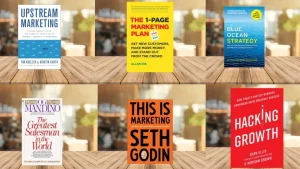Consignment sales can be a fantastic way to declutter your home, sell gently used items, and even make some extra cash. But let’s be real: knowing how to navigate the world of consignment can feel a little tricky at first. Whether you’re looking to sell clothing, furniture, or collectibles, some key strategies can turn your consignment sale into a profitable and hassle-free experience.
In this post, we’ll cover it from tips on how to price and prepare your items to working with consignment shops, and even how to market your goods to stand out in a crowded market. Ready to turn your consignment sale into a success story? Let’s start!
What Is Consignment and How Does It Work?
Before you dive into a consignment sale, it’s important to understand the basics. In simple terms, on consignment means you are giving your goods to a shop or a seller, who will display and sell them on your behalf. You typically don’t get paid until your items sell, and the consignment shop takes a percentage as commission.
Pros
You don’t have to handle the transaction directly to drop off your items.
You can sell items that may be difficult to move on your own, such as furniture or luxury clothing.
Cons
The shop takes a commission (usually 30-50%).
Your items might not sell right away, which means they could stay on display for longer than you’d like.
Unlike resale stores that buy items outright, consignment shops pay you only when your goods sell. This can be a good option if you’re not in a rush to get rid of items but want the ease of someone else doing the heavy lifting.
Choosing the Right Consignment Shop
Not all consignment shops are created equal, so doing your homework is key. First, research local consignment stores in your area or check online for reputable ones with positive reviews. You want a shop that aligns with the types of items you’re selling. For example, if you’re trying to sell vintage clothing, look for a consignment store specializing in fashion-not a general resale shop.
How to Choose the Best Store for Your Needs:
Good Standing: Opt for those who have garnered good customer reviews, preferably those who are well-established in the community.
Commission Structure: Some shops might charge higher commissions on premium items or take a more significant percentage of specific merchandise categories. Make sure you’re clear about the commission percentage before agreeing.
Return Policy: If your items don’t sell, know the shop’s policy on unsold goods. Do they return them to you, or do you have to pick them up by a certain date?
Taking the time to find the right store will save a lot of headaches and may even increase your chances of getting top dollar for your items.

Consignment sales can be a great way to buy and sell gently used items, but knowing how to navigate these events can make a big difference in your success. Here are some broad tips to help you maximize your experience:
Find local consignment events
Check community boards, Facebook groups, and apps like Nextdoor to find upcoming consignments. Many sales are seasonal or happen once a year, so getting on mailing lists or following an event organizer will keep you up to date.
Many consignment stores also have sales or periodically hold events for specific types of items (like kids’ clothes, toys, or home goods).
Bring a Friend
Sometimes, shopping at a consignment sale can be a very overwhelming experience because there are so many items to get rid of. Having a friend with you can help you spot good deals or rare items that you might miss on your own. If you’re buying larger items like furniture or children’s toys, having a friend with you can make the shipping and handling easier.
If you’re consigning, a friend can help you organize and price your items. They can also stand in line for you if you drop things off or pick them up after the sale.
Don’t get overwhelmed
It’s easy to get carried away by the excitement, so you should decide in advance how much you’re willing to spend or how much you want to make from your sale. Take your time and don’t rush. If you’re selling, organize the items in a way that’s easy for buyers to navigate and allows you to keep track of the items sold.
If you’re consigning, break up your time so that you don’t stand in one spot for hours. This can help keep everything organized and reduce stress.
Know What Sells
If you’re buying to resell or trying to find items with a high resale value, try researching products that are currently in demand – such as specific brands of baby gear, toys or vintage items.
Baby and children’s clothing, books, furniture, and toys tend to do very well at consignment sales. Seasonality is another factor: Winter coats, boots and toys sell better than warm items in the colder months, but summer clothes and swimwear do better in the warmer weather. Buyers are usually looking for items that are in good condition. Be cautious with your purchases and check everything for defects before you buy.
Be flexible
Whether you’re buying or selling, flexibility can lead to better results. Buyers often want to haggle, so having a little room to negotiate can help items sell quickly.
If you’re selling, remember that the goal is to get things to a new home. If the price doesn’t come through or the item doesn’t sell, don’t take it personally. Buyers should also keep in mind that not all deals will work out in their favor.
Just because you think your item is worth a certain amount doesn’t mean everyone else is. Price accordingly and be realistic about what people are willing to pay.
Look at different sale days
Many consignment sales are multi-day sales, with different discounts or deals on different days. The first day may have the biggest selection, but items may be full price. Late in the sale, items often go on sale as the event ends.
Some sales offer early bird or VIP passes that give you access to the best items first. If you’re a serious buyer, consider participating in these early access events.
If you’re a seller, find out when the buyer discount days are, as these usually happen towards the end of the sale, which will affect how quickly your items move. Some sales allow you to opt out of the discount on your item.
Try Multiple Stores
Not all consignment sales are equal, and not all stores and events can be held to the same standards or specialization. It pays to check out multiple sales so that you will be sure to find just what you need.
If you plan on purchasing specific items, such as furniture or named-brand clothing, you will want to map out the consignment sales in your area and make note of which ones generally carry those items. If selling, you will want to spread your inventory across various events or consignment stores to increase your chances of selling.
By following these tips, you are better prepared to get the best deals and make sure you get or sell an item in the best possible condition.
Conclusion
Consignment sales are a great avenue to score quality items at a fraction of the cost, whether it be for yourself, your family, or to sell items you no longer need. Understanding what sells, taking accurate measurements, making sure the items are in top condition, and approaching the sale with a flexible mindset will let you reap the most benefits of these events. Don’t forget to tour several consignment shops with a friend by your side; it makes it more fun, and you might be surprised by what treasures you find. By planning ahead and having a few tools in your pocket, you can really get the best out of a consignment sale for both the shopper and the seller.
Interestingly, the same principles for consignment sales can be carried over even into the world of calling center sales. Whether it be an inquiry call or selling the product, in a deal-closing context, much like in the others, there is a need to understand the product, stay flexible, and connect well with them. If you are one of those looking to increase your sales performance in the call center environment, check our Call Center Sales Tips for more insights into engaging customers and converting leads to satisfied buyers.











